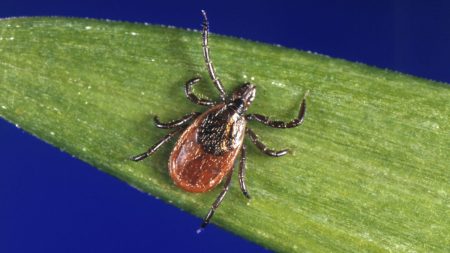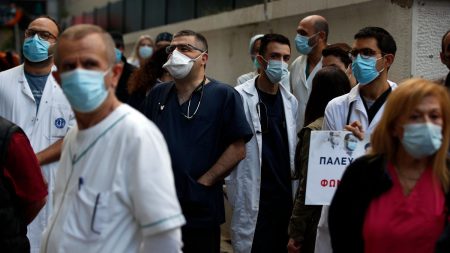The resurgence of Ebola in Uganda after a two-year hiatus has sparked immediate concern and a rapid response from health authorities. The index case, a 32-year-old male nurse at Mulago National Referral Hospital in Kampala, tragically succumbed to the Sudan strain of the virus, marking the first Ebola death in the country since the 2022 outbreak. This unfortunate event has triggered a comprehensive response strategy aimed at containing the spread and preventing a wider outbreak.
The Ugandan Ministry of Health, led by Permanent Secretary Diana Atwine, has assured the public that the situation is under control. Swift action has been taken, including the deployment of rapid response teams and the initiation of contact tracing efforts. Authorities have identified at least 44 contacts of the deceased nurse, including healthcare workers and patients at Mulago Hospital, underscoring the potential for further transmission within the community and healthcare settings. Given the absence of approved vaccines for the Sudan strain, contact tracing becomes a critical component of the containment strategy. This process involves meticulously identifying, monitoring, and potentially isolating individuals who have been in contact with the infected person, effectively breaking the chain of transmission.
The latest Ebola case in Uganda highlights a concerning trend of viral hemorrhagic fever outbreaks in East Africa. In recent months, the region has grappled with outbreaks of Marburg virus disease in both Tanzania and Rwanda. These interconnected outbreaks emphasize the fragility of regional health security and the importance of coordinated surveillance and response mechanisms. The porous borders and interconnectedness of communities within East Africa pose significant challenges in containing the spread of these highly infectious diseases. The frequency and geographic proximity of these outbreaks require a comprehensive regional approach to disease control and prevention.
The World Health Organization (WHO) has pledged immediate financial support to bolster Uganda’s response efforts. Director-General Tedros Adhanom Ghebreyesus announced an initial allocation of $1 million from the WHO contingency fund, highlighting the organization’s commitment to assisting Uganda in combating the outbreak. This financial injection will enable the Ugandan government and its partners to scale up their response activities, including strengthening surveillance, enhancing laboratory capacity, providing essential medical supplies, and supporting community engagement initiatives. The WHO’s involvement signifies the global concern surrounding the Ebola resurgence in Uganda and the recognition of the need for international collaboration in tackling the outbreak.
The urban setting of this outbreak presents unique challenges to containment efforts. Kampala, a bustling city with a population exceeding 4 million, poses significant logistical complexities for contact tracing and isolation measures. The high population density and mobility within the city increase the risk of rapid transmission, making it crucial for health authorities to implement targeted interventions and raise public awareness to curb the potential spread. The concentration of people in urban centers creates an environment conducive to the rapid spread of infectious diseases like Ebola. The mobility of the population adds another layer of complexity, as individuals can quickly travel to different areas, potentially spreading the virus beyond the initial outbreak zone.
Ebola virus disease (EVD) is a severe and often fatal illness, characterized by hemorrhagic fever and a range of debilitating symptoms. Transmission occurs through direct contact with the bodily fluids of an infected person, as well as contact with contaminated materials. The virus’s incubation period, typically 2 to 21 days, underscores the importance of rigorous monitoring of exposed individuals. Early detection and prompt medical intervention are vital in managing cases and preventing further spread. Supportive care, including fluid and electrolyte replacement, is crucial in mitigating the severity of symptoms and improving patient outcomes. While researchers continue to investigate the natural reservoir of Ebola, the suspected source points to contact with infected animals or consumption of their raw meat. Pinpointing the origin of the current outbreak will be essential in informing preventative measures and reducing the risk of future spillover events from animals to humans. The epidemiological investigation underway will play a crucial role in understanding the dynamics of this outbreak and informing future public health strategies to prevent similar occurrences. The Ugandan authorities, in collaboration with international partners, are working tirelessly to contain the outbreak, protect the population, and prevent a wider regional health crisis.














